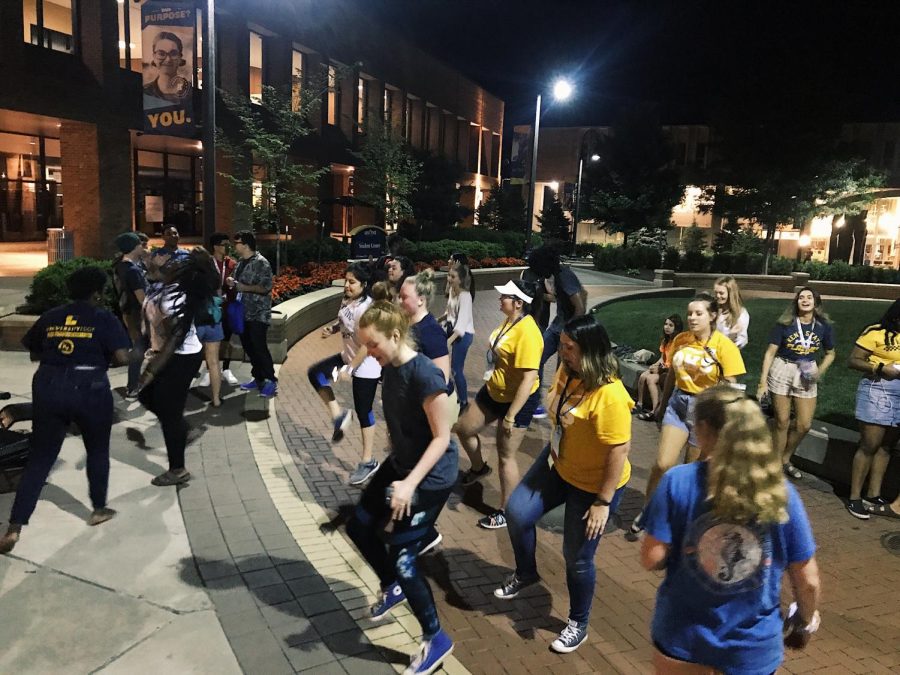DKS reduces retention for in coming freshman
July 10, 2018
Shannon Tate, an academic adviser for the College of Arts and Sciences, retention is explained to why a majority of students drop out by the end of their freshman year.
“I think academics does have a play in it but a lot of times retention deals with financial reasons but also they don’t have a feel of a sense of a belonging,” Tate said. “They are nervous to get help or assistance, people don’t ask to get the help you need and hopefully this will eventually decrease retention.”
According to the Kent Campus Retention page on the university website, the most recent recorded retention rate was 80.1 percent during 2016. The average retention rate according to UsNews with Colleges Where Freshman Are Most Likely To Return, 98 percent of students come back their sophomore at the top 16 best-ranked schools.
DKS is here to reduce redundancy but also show students familiar faces on campus so they don’t feel so alone during their first year. Some students meet their best friends, some people meet their roommate and a few even meet their future husband or wife through the DKS program. Regardless, DKS is a program designed to prevent college dropouts.
The key to the maximum experience is putting yourself out there, said incoming freshman Joey Hardin. He is from North Olmsted and wants to be a middle childhood education teacher.
“This program taught me how to meet friends and how to interact with people you haven’t met. Just try not to be awkward and go up to people and try to make friends with whoever you can,” Hardin said.
It brings people out of their shells, connecting people through a mandatory class. Each student learns about their major as they are all divided in specialized groups with people who have similar interests. The majority of students on this campus has been through it and each help shape the future academic and social life. Jennie Gresley, from Lakeview Cortland, Ohio, is interested in pursuing biology premed.
“I learned a lot about living and learning communities. We learned getting to know other people in your major so it was teamwork building and communication skills,” Gresley said. “I would suggest to do it because there is resources that are giving to you that are not regularly available.”
Tate’s advice for students was to fill out the pre-adviser survey and to arrive early for advising appointments. It can really help the advisors look for more information in the beginning to help better direct the right path.
“If there is a descriptive road map I can better direct them to where they want to got then we can communicate what major they want to go in and it will be in things they are passionate about so they continue their education,” Tate said.
Felica Howard from Toledo, gave advice to future DKS students and explained what she was told about the fashion merchandising major.
“That it is very competitive and I will need to buckle down to have a good job. Students should just go out of your comfort zone and meet new people,” Howard said. “My advice would be don’t stress because it seems over wheeling and it will all fall into place.”
Vala Zeinali, a sophomore computer science major and FlashGuide, has a role where he puts his students in different sessions, to guide students with information when they ask questions and helps speaking during orientations.
“It’s really humbling being a face in at a university and the knowledge I learned more about listening to what a person needs, also there is a lot of public speaking so my leadership skills have improved,” Zeinali said.
Kelsie Kline is a general assignment reporter. Contact her at [email protected].












